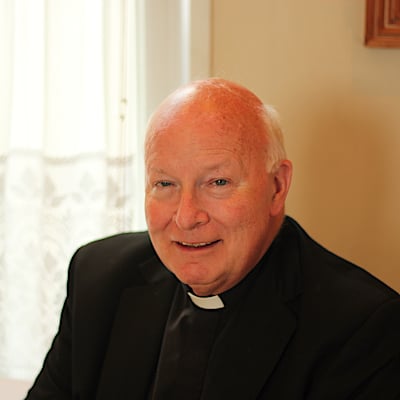B 3.3. What structures can be developed to strengthen a missionary synodal Church?
The Continental Assemblies express a strong desire that the synodal way of proceeding, experienced in the current journey, should penetrate into the daily life of the Church at all levels, either by the renewal of existing structures—such as diocesan and Parish Pastoral Councils, Economic Affairs Councils, diocesan or eparchial Synods—or by the establishment of new ones. While not meaning to diminish the importance of renewed relationships within the People of God, work on structures is indispensable to strengthen changes over time. In particular:
a) in order not to remain merely a paper exercise or to be wholly dependent on the goodwill of individuals, co-responsibility in the mission deriving from Baptism must take on concrete structural forms. Adequate institutional frameworks are therefore necessary, along with spaces in which community discernment can be practised on a regular basis. This should not be read as a demand for a redistribution of power, but the need for the effective exercise of co-responsibility that flows from Baptism. This latter confers rights and duties on each person, which each one must be able to exercise according to his or her charisms and ministries;
b) this requires that structures and institutions function with adequate procedures that are transparent, mission-focused and open to participation; procedures that make room for women, young people, minorities, the poor and marginalised. This is true for the participatory bodies already mentioned, the role of each of which must be reaffirmed and strengthened. It is also true for: decision-making bodies of associations, movements and new communities; governing bodies of Institutes of Consecrated Life and Societies of Apostolic Life (in a manner appropriate to the particular charism of each); the many and diverse institutions, often also subject to civil law, through which missionary action and the service of the Christian community is realized, such as schools, hospitals, universities, mass media, reception and social action centres, cultural centres, foundations, etc;
c) The call to reform structures, institutions and functioning mechanisms with a view to transparency is particularly strong in those contexts most marked by the abuse crisis (sexual, economic, spiritual, psychological, institutional, conscience, power, jurisdiction). Inadequate handling of abuse cases is often part of the problem, calling into question the mechanisms, procedures and overall functioning of ecclesial structures and institutions, as well as the mindset of people working within them. The search for transparency and co-responsibility also raises fears and resistance; this is why it is necessary to deepen dialogue, creating opportunities for sharing and dialogue at all levels;
d) the method of conversation in the Spirit has proven to be particularly valuable for rebuilding trust in those contexts where, for various reasons, a climate of mistrust has developed between the various members of the People of God. A journey of conversion and reform, which listens to the voice of the Spirit, demands structures and institutions capable of accompanying and supporting this journey. At the same time, however, the Continental Assemblies strongly expressed the conviction that structures alone are not enough, but that a change of mindset is also needed, hence the need to invest in formation;
e) Moreover, it also seems advisable to take action in the area of canon law by: rebalancing the relationship between the principle of authority, which is strongly affirmed in the current legislation, and the principle of participation; strengthening the synodal orientation of already existing institutions; creating new institutions, where this appears necessary for the needs of community life; supervising the effective application of current legislation.
Question for discernment
A synodal Church needs to live co-responsibility and transparency: how can this awareness form the basis for the reform of institutions, structures and procedures, so as to strengthen change over time?
Suggestions for prayer and preparatory reflection
1) How should canonical structures and pastoral procedures change to foster co-responsibility and transparency? Are the structures we have adequate to ensure participation or do we need new ones?
2) How can Canon Law contribute to the renewal of structures and institutions? What changes seem necessary or opportune?
3) What obstacles (mental, theological, practical, organisational, financial, cultural) stand in the way of transforming the participatory bodies currently provided for in canon law into bodies of effective community discernment? What reforms are needed so that they can effectively, creatively and vibrantly support the mission? How can they be made more open to the presence and contribution of women, young people, the poor, migrants, members of minorities and those who for various reasons find themselves on the margins of community life?
4) How does the perspective of a synodal Church challenge the structures and procedures of consecrated life, the different forms of lay association, and the functioning of Church-related institutions?
5) In which areas of institutional life is there a greater need for transparency (economic and financial reporting, selection of candidates for positions of responsibility, appointments, etc.)? What tools can we use to achieve this?
6) The prospect of transparency and openness to joint consultation and discernment processes also raises fears. How do they manifest themselves? What are those who express concerns afraid of? How can these fears be addressed and overcome?
7) To what extent is it possible to distinguish between the members of an institution and the institution itself? Is the responsibility for mishandling cases of abuse individual or systemic? How can a synodal perspective contribute to creating a culture which prevents abuse of all kinds?
8) What can we learn from the way in which public institutions and public and civil law strive to respond to the need for transparency and accountability in society (separation of powers, independent supervisory bodies, obligations to make public certain procedures, limits on the duration of appointments, etc.)?
9) What can we learn from the experience of other Churches and ecclesial Communities regarding the functioning of structures and institutions in a synodal style?













